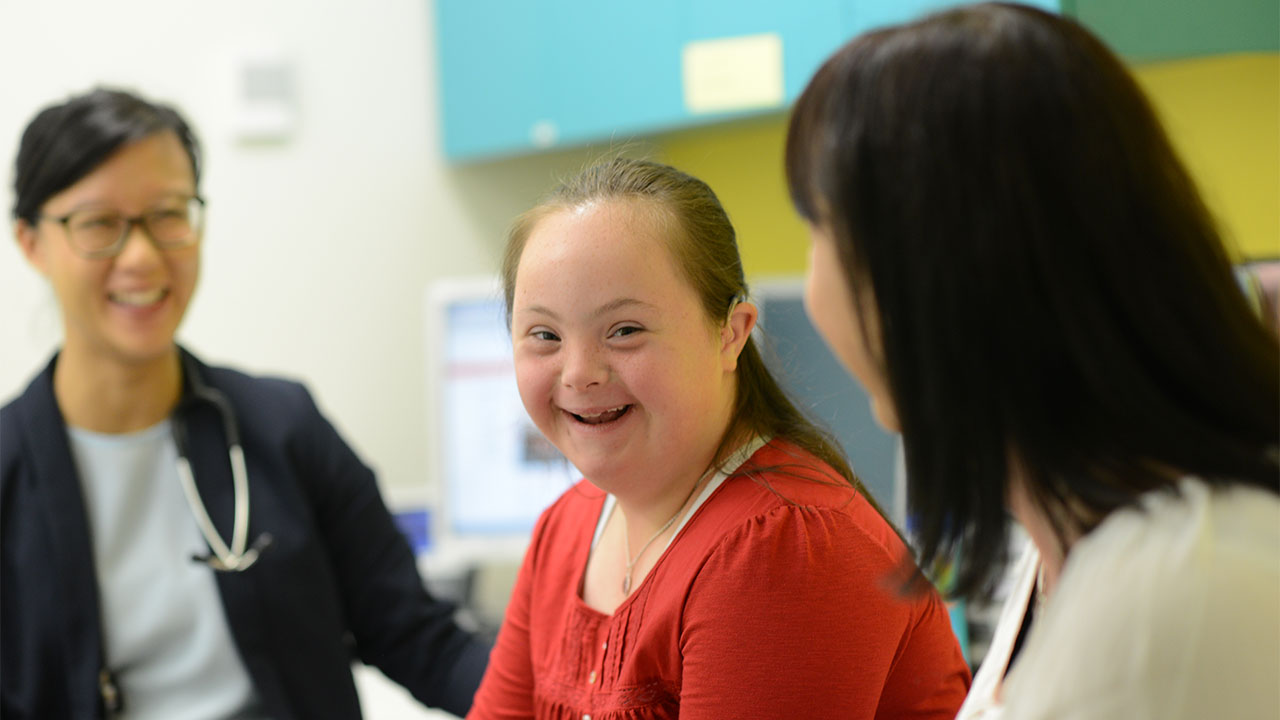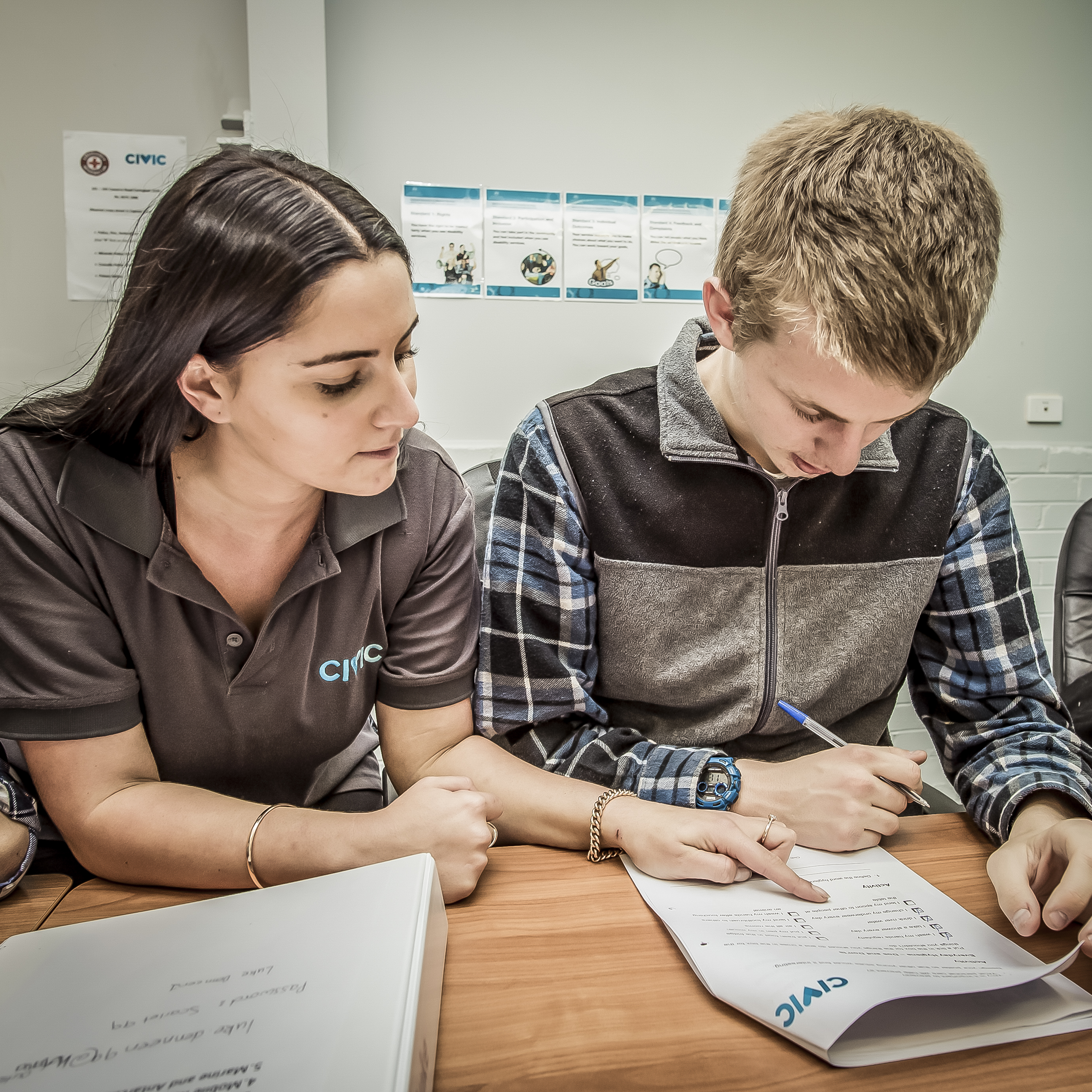Why Disability Support is crucial to individualized home care success
Why Disability Support is crucial to individualized home care success
Blog Article
The Necessary Connection In Between Special Needs Providers and Effective Home Treatment Solutions
The partnership in between impairment solutions and home care options is vital for improving the lives of individuals with impairments. Impairment solutions give important sources and support. Home treatment solutions supply personalized aid in familiar settings. This collaboration advertises freedom and social incorporation. The specifics of just how these components connect stay complicated. Recognizing this connection can disclose brand-new insights right into enhancing treatment for those in need. What are the ramifications for individuals and caregivers alike?
Comprehending Disability Services: A Summary
While many individuals may not fully grasp the intricacies of disability services, comprehending their extent and significance is essential for fostering inclusivity. Handicap services encompass a large array of support systems developed to aid people with physical, intellectual, or developing disabilities. These solutions objective to boost the high quality of life, advertising self-reliance and participation in culture. They include curricula, employment support, transport aid, and healthcare solutions tailored to individual needs.Furthermore, these services frequently entail cooperation amongst numerous stakeholders, including federal government agencies, non-profit organizations, and area teams. This joint approach warranties that people receive complete assistance that resolves their special obstacles. Awareness of special needs solutions is imperative, as it motivates social acceptance and the elimination of preconception. By identifying the importance of these solutions, areas can create a much more comprehensive environment, eventually benefiting everybody and promoting level playing fields for people with disabilities.
The Role of Home Treatment in Sustaining Individuals With Disabilities
Home care plays a vital duty in boosting the lives of people with specials needs by giving tailored support in familiar settings. This kind of care allows people to preserve their self-reliance while getting support tailored to their certain requirements. Caregivers not just provide physical support, such as aid with everyday tasks like bathing and meal preparation, however also offer emotional support and companionship.In addition to functional help, home treatment solutions facilitate social communication, which is fundamental for psychological wellness. By involving individuals in neighborhood activities or helping with interaction with friends and family, caretakers help battle feelings of seclusion. Home treatment also alleviates the concern on household participants, enabling them to concentrate on their very own obligations while guaranteeing their liked ones get appropriate treatment (Disability Services Sydney). Ultimately, home treatment works as a substantial assistance system, equipping people with handicaps to thrive within their own homes
Tailored Care Strategies: Fulfilling One-of-a-kind Needs
Tailored treatment strategies are important for efficiently dealing with the unique requirements of individuals with impairments. These plans are made to provide customized assistance, thinking about the certain obstacles and preferences of each person. By performing detailed analyses, care providers can recognize locations and staminas calling for support, making certain that treatment is both relevant and effective.Incorporating input from the individual and their family participants promotes a collaborative method, boosting engagement and fulfillment. Tailored care strategies may include different services, such as physical treatment, work-related treatment, and individual care support, all aimed at promoting overall well-being. Routine assessments of these treatment plans are necessary to adjust to altering demands and scenarios. This flexibility enables prompt changes, making certain that people obtain optimal support throughout their lives. Inevitably, tailored care plans work as a foundation for providing quality care that appreciates the self-respect and individuality of each individual.
Enhancing Freedom With Disability Solutions
Encouraging people with specials needs to achieve greater independence is a main goal of special needs services. These services give essential sources that facilitate self-sufficiency and improve the lifestyle for those impacted. By providing individualized assistance, such as movement training, flexible modern technologies, and life abilities growth, handicap solutions make it possible for people to navigate daily difficulties extra effectively.Access to community-based programs and social addition initiatives even more promotes independence. With these chances, individuals can participate in meaningful activities, build partnerships, and develop a sense of belonging. Additionally, info and recommendation services help link individuals to critical resources, ensuring they obtain the help required to thrive.Ultimately, enhancing freedom with disability services not just advantages individuals however also promotes a more comprehensive society. By breaking down barriers and encouraging self-advocacy, these solutions equip people to lead meeting lives, contributing to their communities in beneficial methods.
The Relevance of Training for Caretakers
Educating for caregivers is crucial for establishing crucial skills that directly affect the high quality of treatment provided to people with specials needs. By enhancing their expertise and abilities, caregivers can foster caring relationships that promote trust fund and understanding. This emphasis on training not just enhances service delivery but also improves the overall caregiving experience.
Essential Skill Advancement
Ability growth is crucial for caretakers in the disability services and home treatment markets. Appropriate training furnishes caregivers with the essential abilities essential to offer efficient support and aid to people with impairments. This consists of understanding particular clinical demands, effective interaction methods, and the ability to reply to numerous behavioral obstacles. In addition, skill advancement improves caretakers' capacity to cultivate freedom in clients, guaranteeing they can do daily activities with self-respect. Ongoing training also advertises confidence and job complete satisfaction amongst caregivers, decreasing turnover prices in the sector. By focusing on skill development, organizations can assure that caregivers are well-prepared to satisfy the varied demands of those they offer, inevitably adding to a much more compassionate and effective treatment atmosphere.
Enhancing Treatment Top Quality
Boosting the quality of care for individuals with impairments hinges on the comprehensive training provided to caretakers. Trained caretakers possess necessary understanding and skills needed to resolve the a knockout post unique requirements of their customers effectively. Extensive training programs encompass numerous facets, such as comprehending disability-specific obstacles, effective communication methods, and safety and security procedures. In addition, recurring education warranties that caretakers stay updated on finest techniques and arising innovations in home treatment - Disability Support. This dedication to training not just improves solution delivery but also promotes a feeling of self-confidence among caretakers, which view website converts right into enhanced treatment quality. Ultimately, investing in caregiver training is important for producing an environment where people with handicaps get the alert, considerate, and efficient treatment they should have
Building Compassionate Relationships

Constructing an Encouraging Environment in the house

Accessible Home Adjustments
Numerous people with specials needs encounter considerable challenges in maneuvering their home settings, making obtainable home adjustments vital for promoting self-reliance and safety. These adjustments can include setting up ramps, expanding doorways, and creating barrier-free shower rooms, thereby making it possible for less complicated gain access to throughout the home. In addition, adding grab bars and non-slip surface areas can significantly lower the threat of falls, promoting a more protected living area. Stairlifts or lifts might also be necessary for multi-level homes, ensuring that all locations are obtainable. By applying these modifications, caretakers can help create an atmosphere where individuals can browse their areas with confidence. Ultimately, obtainable home alterations play a vital duty in improving the lifestyle for those with handicaps, permitting them to grow in their own homes.
Personalized Care Plans
Accessible home alterations prepared for an atmosphere where people with disabilities can prosper, however tailored support is equally crucial. Individualized treatment plans play a necessary duty in resolving the special demands of each individual. These strategies are created with detailed evaluations that think about clinical requirements, personal preferences, and day-to-day regimens. By focusing on individual strengths and challenges, caregivers can produce techniques that foster self-reliance and boost lifestyle. Regular assessments assure that care plans remain efficient and appropriate, permitting modifications as demands alter with time. This personalized approach not just enhances the experience of those getting care yet likewise promotes a feeling of autonomy, inevitably adding to an extra helpful and encouraging home setting.
Household Participation Methods
Family members involvement is essential in developing a supportive atmosphere for people with disabilities in the house. Engaging relative in treatment methods fosters a feeling of belonging and safety and security. Reliable communication is pivotal; normal household conferences can assist why not try here in conversations concerning the individual's choices and requirements. Additionally, informing member of the family concerning the specific specials needs can boost understanding and empathy, causing much better assistance. Encouraging engagement in everyday tasks not only enhances relationships yet also advertises self-reliance for the individual. It is necessary for family members to collaborate with special needs service providers to create natural treatment plans. By actively involving family members, a supporting atmosphere is cultivated, ultimately enhancing the high quality of life for those with specials needs.
Determining the Effect of Integrated Care Solutions
The performance of integrated treatment solutions can considerably influence the top quality of life for people with impairments. Gauging this effect calls for a multifaceted method that incorporates various metrics, consisting of wellness end results, individual contentment, and cost-effectiveness. Health and wellness results can be analyzed by tracking improvements in movement, mental health and wellness, and overall well-being, supplying concrete evidence of treatment efficiency. User contentment studies can capture the experiences of individuals and their households, providing insights into the regarded quality of treatment got. In addition, assessing cost-effectiveness aids to assure that resources are being used successfully, allowing for sustainable care models. By utilizing these dimension strategies, stakeholders can gain a thorough understanding of exactly how integrated treatment solutions positively impact individuals with handicaps. Eventually, this information not only help in refining existing solutions but also educates future policy decisions, ensuring that care continues to be lined up with the advancing demands of this population.
Often Asked Inquiries
Just How Can Family Members Advocate for Better Handicap Solutions and Home Care?
Families can advocate for enhanced impairment solutions and home care by investigating resources, going to neighborhood meetings, engaging with regional representatives, sharing personal experiences, forming support groups, and teaming up with companies devoted to impairment legal rights and care enhancements.
What Prevail Misconceptions Concerning Disability Providers and Home Care?

Exist Financial Aid Options for Impairment Providers and Home Care?
Economic help options for handicap solutions and home treatment consist of federal government programs, grants, and insurance coverage. Resources differ by area, requiring people to research study regional firms and organizations that give economic assistance tailored to their needs.
How Can Technology Improve Home Take Care Of Individuals With Disabilities?
Technology can boost home take care of individuals with handicaps by giving assistive tools, telehealth services, and checking systems. These advancements enhance accessibility, advertise freedom, and make it possible for caregivers to respond much more efficiently to the demands of their customers.
What Resources Are Offered for Caregivers of People With Disabilities?
Different sources exist for caretakers of individuals with disabilities, including federal government aid programs, support system, academic workshops, on the internet discussion forums, and specialized training. These sources intend to improve caretakers' skills and give functional and emotional assistance. The relationship between handicap solutions and home treatment services is crucial for enhancing the lives of individuals with impairments. Home treatment likewise minimizes the burden on household members, permitting them to focus on their own obligations while guaranteeing their loved ones receive ample care. By conducting detailed evaluations, treatment companies can determine toughness and locations calling for assistance, making sure that care is both effective.incorporating and pertinent input from the individual and their family members cultivates a collective strategy, improving engagement and satisfaction. Customized care plans might consist of various solutions, such as physical treatment, job-related treatment, and individual care support, all aimed at promoting total well-being. Technology can improve home care for people with disabilities by providing assistive devices, telehealth services, and keeping an eye on systems.
Report this page